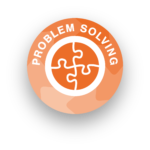Your child has such a passion for learning that sometimes you feel that you just can’t keep up. What do you do next? Not sure? Dip into these ideas for a little inspiration (with a subtle focus on deeper learning too!).
Take Resources To the Next Level
It needn’t be costly to extend a child’s knowledge. Let them go to the limit on their library card, and encourage older children to learn how to use the reference sections. Book onto a talk aimed at a higher age or find a more unusual museum which has a theme that ties into their main passion e.g. an ‘Alice In Wonderland’ fan could visit the Oxford Natural History Museum which displays a dodo that may have inspired Lewis Carroll. You could also find competitions that will strengthen their interest in a topic by challenging them – some are listed in the monthly member newsletter, Focus on Potential.
If you haven’t bought a copy already, our 50th Anniversary Challenge Book also has ideas galore! https://potentialplusuk.org/index.php/product-category/activity-booklets/
Intrigue With Open-Ended Investigation
Pick experiments that may not have a correct answer but a variety of good answers based on changing variables. For example, build a water filter using a bottle, cheesecloth, fine and coarse sand, fine and coarse gravel: https://sciencing.com/make-water-filter-science-experiment-5507017.html – what combination of layers works best and why? How can the flow be improved?. Or perhaps consider a play’s ending and write alternatives for it. In both cases, critical skills are required for considering the pros and cons.
Projects Show Passion
Get them involved with a project that relates to what they enjoy. For example, an interest in exoplanets might spark an interest in the “alien life” question which they could then reflect about in a news report, a comic, play or piece of art.
Add the unusual: bring in a film aspect and talk about how the movies depict exoplanets – your child could compare Luke Skywalker’s Tatooine with Kepler 16b!
Try Less Obvious and Unusual Activities
Here are a few ideas to get your children started:
- Create a comic strip in which they are an unusual superhero and solve their own dilemmas.
- Create a balanced meal for the family and make it.
- Write a secret code in a challenging language e.g. runes, Japanese, Icelandic, Greek. Or develop a new code entirely.
- Learn sports scoring e.g. cricket/tennis/baseball.
- Take a photograph and try to copy it using watercolour or acrylic paint.
- Teach them to use an online calendar so that they can manage their week.
- Build electronic circuits and test them.
- Make a “STEM is cool” rap.
- Create advertising for a fictional business.
- Find a computer program that can educate using a personalised approach e.g. Khan Academy or DoodleMaths.
- Play strategy and logic games: e.g. Pandemic, IQ Twist, Othello, Labyrinth, Blokus, Snake Oil.
- Try more difficult origami and invent or find a story that links to the creation.
- Go indoor climbing: create a mental puzzle working out routes.
- Make a podcast about a recent trip.
- Open up the car’s bonnet. Ask your child to learn how the engine works and explain it.
- Go on a guided tour to a factory e.g. Mini visit-mini.com.
- Estimate how long it took to build a local landmark and how much material was needed.
- Find out about an unfamiliar piece of music and the musical era that inspired it.
- Write to someone in the local community e.g. a police officer, wildlife volunteer, cafe owner.
- Play an anagram game (Boggle, or Jumble).
- Create a theatre set.
- Make a challenging activity booklet to give to a parent.
- Read a broadsheet and write a letter to the editor. What are they looking for?
- Investigate clothes design, collect images and make fashion drawings, noting the materials used. Are they different/appealing/sustainable?
- Read a biography about someone they admire.
- Use code combat to learn Python or Javascript while venturing through an adventure game: codecombat.com . https://codecombat.com/
- Invent a country. Draw maps and pictures of the inhabitants – how does the local environment influence life there?
- Write a poem about their favourite subject and how it relates to them.
Challenge, Not Push
Provide challenge which is stimulating but avoid overdoing it. Your child needs free time for unstructured passions – be it their reading time, origami or playing games. Have a ball together!
For more ideas and information on deeper learning see our activity sheet: Fun Ideas to Encourage Deeper Learning at Home (£1.80 or free to members)











